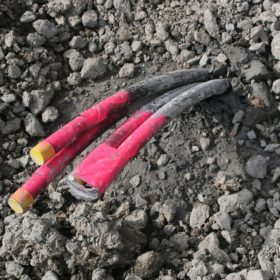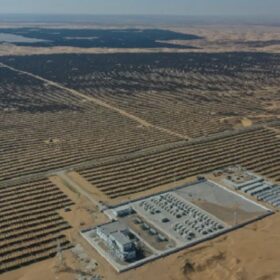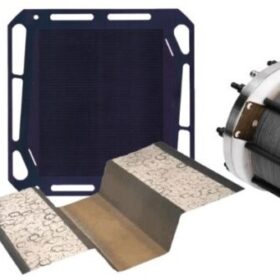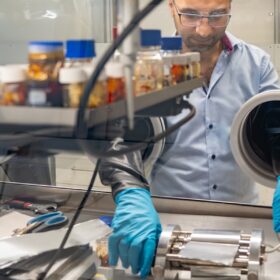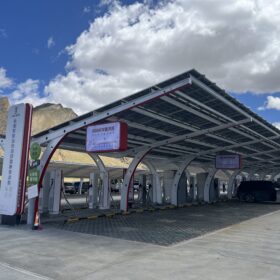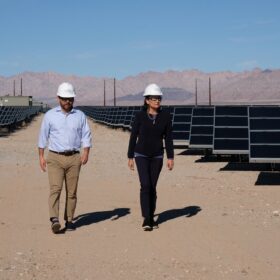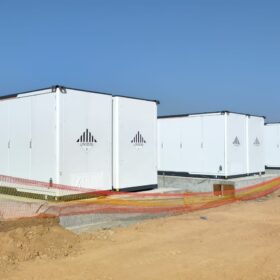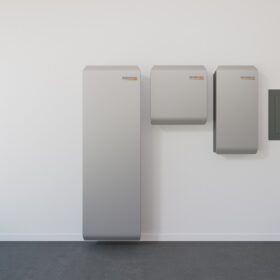Using surplus PV power for seasonal underground thermal storage
Scientists have proposed a new system that uses surplus PV energy in the spring and the autumn to charge up underground thermal energy storage for later use in the summer and winter. They have simulated it on a school facility in Seoul, with a few optional configurations for thermal storage. Power savings were up to 39%.
Works begin on 1.4 GWh Inner Mongolia project combining lithium-ion, redox flow storage technologies
The Dengkou Renewable Energy Storage Project is billed as the largest single-capacity energy storage station under construction in China.
Novel fuel cell tech based on silicon-based bipolar plates
Australia’s Clean Energy Finance Corporation has backed a hydrogen fuel cell developer $7 million to support an innovative form of technology using silicon-based bipolar plates.
Egypt set for giant solar-plus-battery storage project
Norwegian developer Scatec ASA has signed a 25-year power purchase agreement (PPA) for a 1 GW solar array and 100 MW/200 MWh battery storage project in Egypt. CEO Terje Pilskog says it is Egypt’s first hybrid solar-plus-battery project.
Aluminium-polymer battery for stationary electricity storage
The device developed by TU Bergakademie Freiberg researchers uses aluminum as an anode, graphite as a cathode, and a polymer-based solid electrolyte. It is being validated and further developed for industrial production. The goal is storage capacity of 10 kWh.
New solar carport opens at 4,300 meters on Mount Everest
Chinese module maker Aiko Solar says it has built a 150 kW off-grid solar carport at an altitude of 4,300 meters on Mount Everest, featuring 645 W bifacial dual-glass modules and 200 kWh of battery storage.
2.8 GWh collocated battery storage project lands US government approval
The US Department of Interior has given the green light to Nevada’s largest solar+storage development, the Libra Solar Project. It has also opened a comment period for the Bonanza Solar Project, which features a 195 MW/780 MWh battery storage system.
Storage, hydrogen, and demand flexibility key to avoiding negative prices
Antonio Delgado Rigal, CEO of Spain’s AleaSoft Energy Forecasting, speaks with pv magazine about the rise in negative price hours in major European energy markets. He emphasizes the need for more storage capacity and argues that negative price periods will probably not threaten project profitability over the long term.
Brazilians ready to embrace storage amid rising energy bills, falling battery prices
The conditions are in place for the country’s battery energy storage market to expand at a compound annual growth rate (CAGR) of 20% to 30%, as Holu Solar’s Sophia Costa explained.
Generac presents new residential batteries
The US-based storage system providers said its new batteries are configurable in 3 kWh modular increments up to 4 cabinets per site. Their roundtrip efficiency ranges from 88% to 91%.
